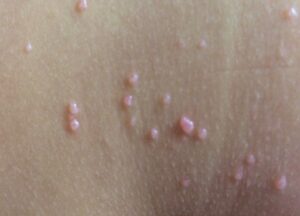How to Stop a Toddler From Biting


It’s a common scenario: an angry toddler acts out with a firm bite. It can be a parent, an authority figure such a daycare worker or caregiver, or even another child. If you’re the parent of a toddler, you know how embarrassing it can be, and in some daycares and preschools, toddlers can even be removed for biting.
Knowing why toddlers bite is the first step to controlling this behavior. In general, toddlers bite because they are frustrated and it can be a totally normal response, along with crying and, for many toddlers, occasionally hitting. However, biting is not acceptable, so it’s up to parents to provide their toddlers with alternative ways to properly express frustration and anger.
When a child bites, it’s important to take action quickly. Here’s what to do:
- As soon as possible after the actual biting, explain that biting is not okay (putting the child in a brief time-out or at least separating from the situation may help).
- Make sure the child who has been bitten is not injured; this will help console the victim, but it also helps for the child who did the biting to see that their behavior isn’t rewarded with attention.
- Take advantage of the teachable moment by giving your child words to better express feelings. You might say, “You’re MAD, aren’t you? You’re feeling very MAD right now?” Use this opportunity to teach them what to do when they are mad. (The feeling itself is not bad; it is the action behind the feeling that got them in trouble).
- Preventing biting
- It’s always a good idea to “catch” your child behaving well. When your child is angry or frustrated and doesn’t resort to biting, praise their behavior and reinforce ways they can safely express their emotions.
- Whatever you do, don’t bite your child “back” to show that it hurts. Child psychologists agree this is not a helpful strategy. In fact, biting, spanking, or hitting a child sends the message that it’s okay to use physical force to deal with anger. You should also avoid telling your child they are “bad” or labeling the child as a biter.
- Usually, these steps will help put an end to biting—but it won’t happen overnight. While biting is a normal stage of development, if your child is still biting others after the age of three, you may want to bring it up with your pediatrician.
Sources:
- American Academy of Pediatrics
- Biting.
American Academy of Pediatrics - Children who bite.
Healthy Children - Aggressive Behavior.
Healthy Children - How to Respond with Effective Discipline.
Healthy Children - How to Encourage Good Behavior.
Powered by Bundoo®










































